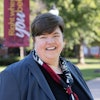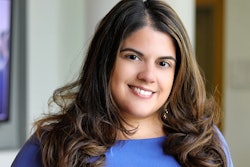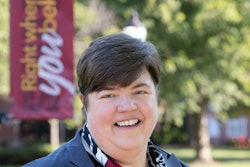When Dr. Keisha-Khan Y. Perry applied for a teaching position at Brown University five years ago, she was doubtful that she would even get the job, let alone an interview.
Fresh out of graduate school, Perry, who received her Ph.D. in anthropology from the University of Texas at Austin, was completing a post-doctoral fellowship at Smith College in Massachusetts when Brown University granted her an on-campus interview.
“I was one of those people who went to a big state school, so I thought I would teach at a big state school,” says Perry, who applied for an Africana Studies assistant professorship, placing her in direct competition with seasoned scholars who were vying to gain a foothold at Brown.
“This is the kind of job that you want to have after you write three different books and spend 15 years working hard in the field,” says Perry, 34, who fell in love with Brown the moment she arrived on its campus for her interview.
A rising star within the field of Africana Studies, Perry was offered the tenure-track position and joined a department that now includes some of the nation’s most distinguished scholars, such as Dr. Tricia Rose, Dr. Anthony Bogues, and well-known authors Chinua Achebe and John Edgar Wideman.
“My colleagues are some of the leading folks in the field,” says Perry. “I’m glad to be in an Africana Studies department surrounded by people who support my work and where I don’t sound crazy.”
It used to be that newly minted Ph.D.s had to establish themselves and cut their academic teeth at less competitive colleges and universities. That was certainly true for young Black scholars. The prospects of landing a coveted teaching position at one of the nation’s eight Ivy League institutions were dim. In the years leading up to the Civil Rights Movement, most Black Ph.D.s were relegated to teaching at HBCUs.














